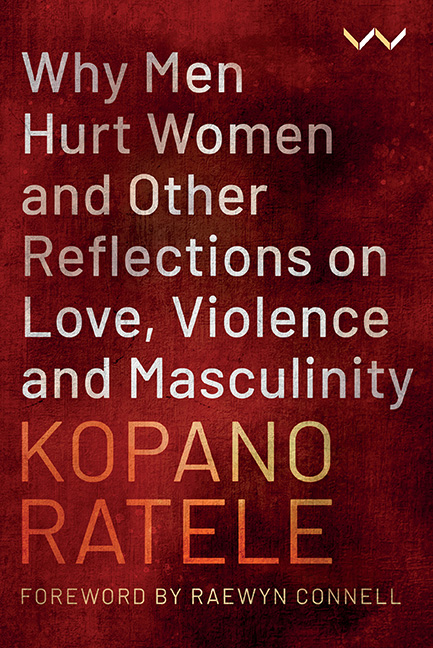25 - Is the lesbian an alibi for an untenable model of masculinity?
Published online by Cambridge University Press: 24 November 2023
Summary
I had just received the book about Zanele Muholi’s exhibition at the Tate Modern Gallery in London. I was reminded that while violence against lesbians is commonplace, it seemed that as a country we could not fully process the horror of it. It may be that we did not want to confront the fullness of the terror to which lesbians have been subjected.
Has the horror gone away? I do not know. Actually, I do not think it has.
Why have there been so many sexually and physically violent acts against lesbians over the years? I do not know. However, I have sought to understand the terroristic violence perpetrated by men against lesbians.
I have written about the killing of Zoliswa Nkonyana in 2006 and the conviction of four men for her murder. In 2008, former Banyana Banyana star Eudy Simelane was murdered and two men, Themba Mvubu and Thato Mphithi, were sentenced to life imprisonment and 32 years, respectively, for the murder. In 2011, 24-year-old Noxolo Nogwaza, a member of the Ekurhuleni Pride Organising Committee, was raped, then stoned and stabbed to death. Reports are that on the evening of her rape and murder she had been with a friend at a bar, and a group of men had an argument with her and friends of hers. In 2019, 25-year-old Portia Simphiwe Mtshweni was murdered and mutilated in Tweefontein, Mpumalanga. In 2020 Liyabona Mabishi, aged 16, from Nkanini, Stellenbosch, was stabbed to death. On and on, so much death and other forms of violence against lesbians. As far as I am aware, many of these cases in which lesbians are raped or murdered are never resolved, with no arrests made or prosecutions pursued.
Once again, I think social inequality between women and men contributed to this violence. Men’s violence against lesbians is misogynistic violence and sexualised violence. There are links between the two – and one might say, sexualised violence is misogyny.
There are other drivers of the rape and murder of lesbians, though, including support for the use of violence as a means to resolve issues, attitudes toward black lives, attitudes toward women as a whole, attitudes toward different sexualities, economic inequality and poverty as an intertwined pair of factors, alcohol and other drugs, mental health issues, the weakness of the criminal justice system, and the dominant psychology of men.
- Type
- Chapter
- Information
- Publisher: Wits University PressPrint publication year: 2022



